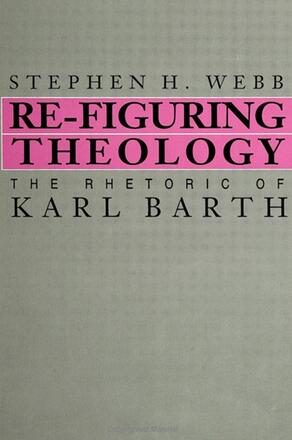
Re-Figuring Theology
The Rhetoric of Karl Barth
Alternative formats available from:
Description
Here is a rhetorical treatment of Karl Barth's early theology. Although scholars have long noted the rhetorical power of Barth's work, calling it volcanic and explosive, this book uses rhetoric to illuminate the peculiar nature of his prose. It displays a Barth whose prose is radically unstable and inseparable from his theological arguments.
The author connects Barth's early theology to the Expressionism of the Weimar Republic. He develops an original theory of figures of speech, relying on the philosophies of Paul Ricoeur and Hayden White, to delve more deeply into the particular configurations of Barth's writings. Nietzsche's hyperbole and Kierkegaard's irony are examined as rhetorical precedents of Barth's style. The closing chapter surveys Barth's later, realistic theology and then suggests ways in which his earlier tropes, especially the figures of excess and self-negation, can serve to enable theology to speak today.
Stephen H. Webb is Byron K. Trippet Assistant Professor of Religion and Philosophy at Wabash College.
Reviews
"The status of rhetoric in relation to conceptual thought has been an important issue since the 13th century. With the advent of deconstructionism, it has become more urgent to sort out the implications of the different positions taken on this issue.
"The theology of Karl Barth is a strategic test case for exploring this issue, both because he is a central figure in twentieth century theology and because of the radicality of his challenge. The author has illuminated Barth's theology by his astute rhetorical analysis and, reciprocally, the status of rhetoric by a thorough investigation of Barth's texts. " — Mary Gerhart, Hobart & William Smith Colleges
"The approach developed in this book is deeply appropriate both to the early Barth and to the present conversation among theologians. It promises to vitalize academic theology, a field that without such recurrent infusions can become repetitive and pompous. " — David B. Greene, North Carolina State University